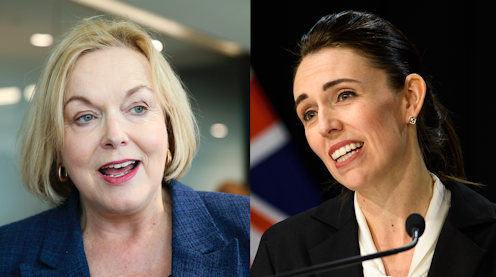5 experts on the first TV leaders' debate of NZ's election
- Written by The Conversation
 Hagen Hopkins/Mark Tantrum (Getty)
Hagen Hopkins/Mark Tantrum (Getty)Prime Minister and Labour leader Jacinda Ardern and National Party leader Judith Collins have met for the first televised debate of the 2020 election campaign. With the results of the latest 1 News-Colmar Brunton poll released only an hour earlier, there was much at stake.
While down slightly on previous polls,...
Read more: 5 experts on the first TV leaders' debate of NZ's election

















